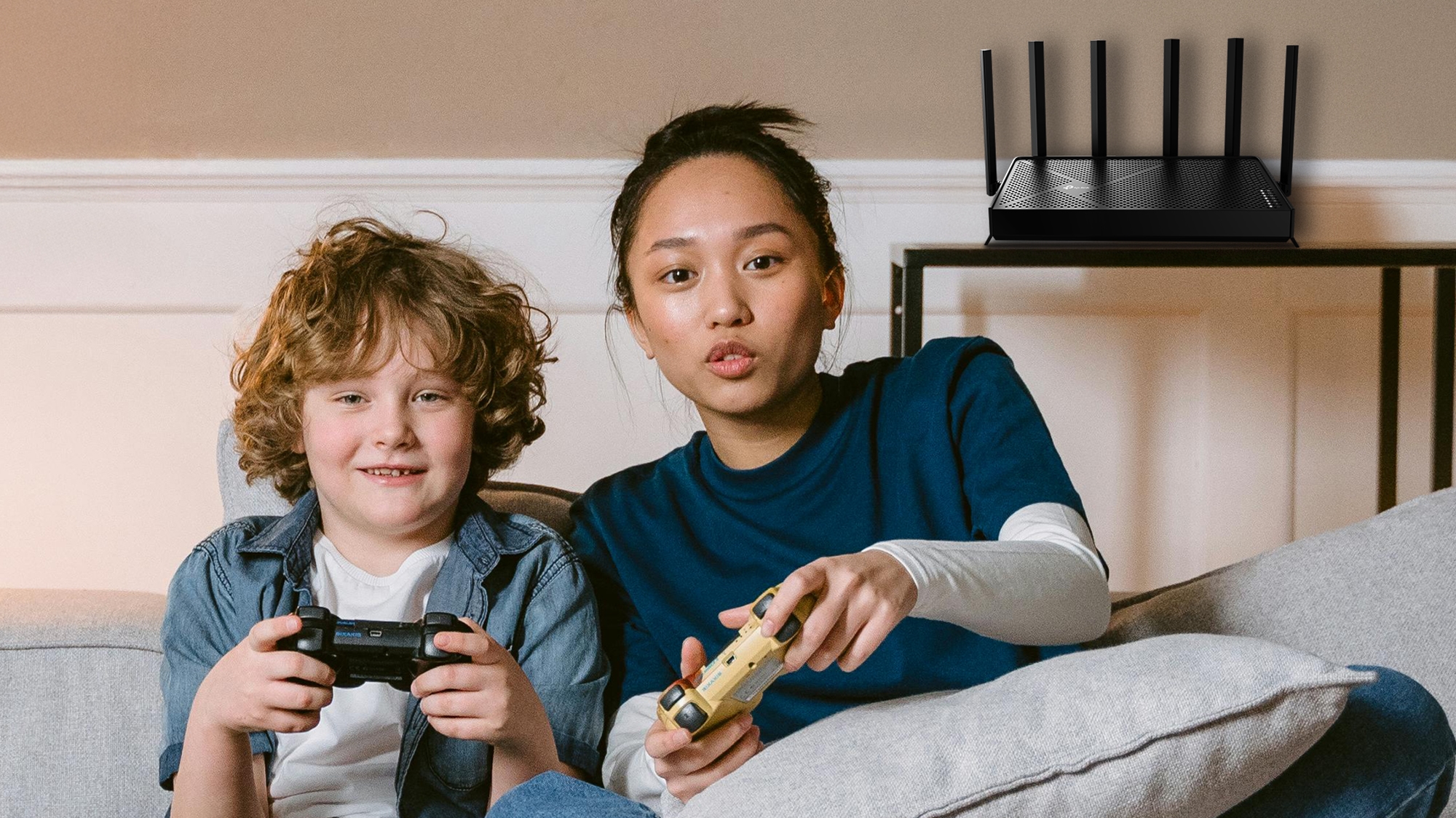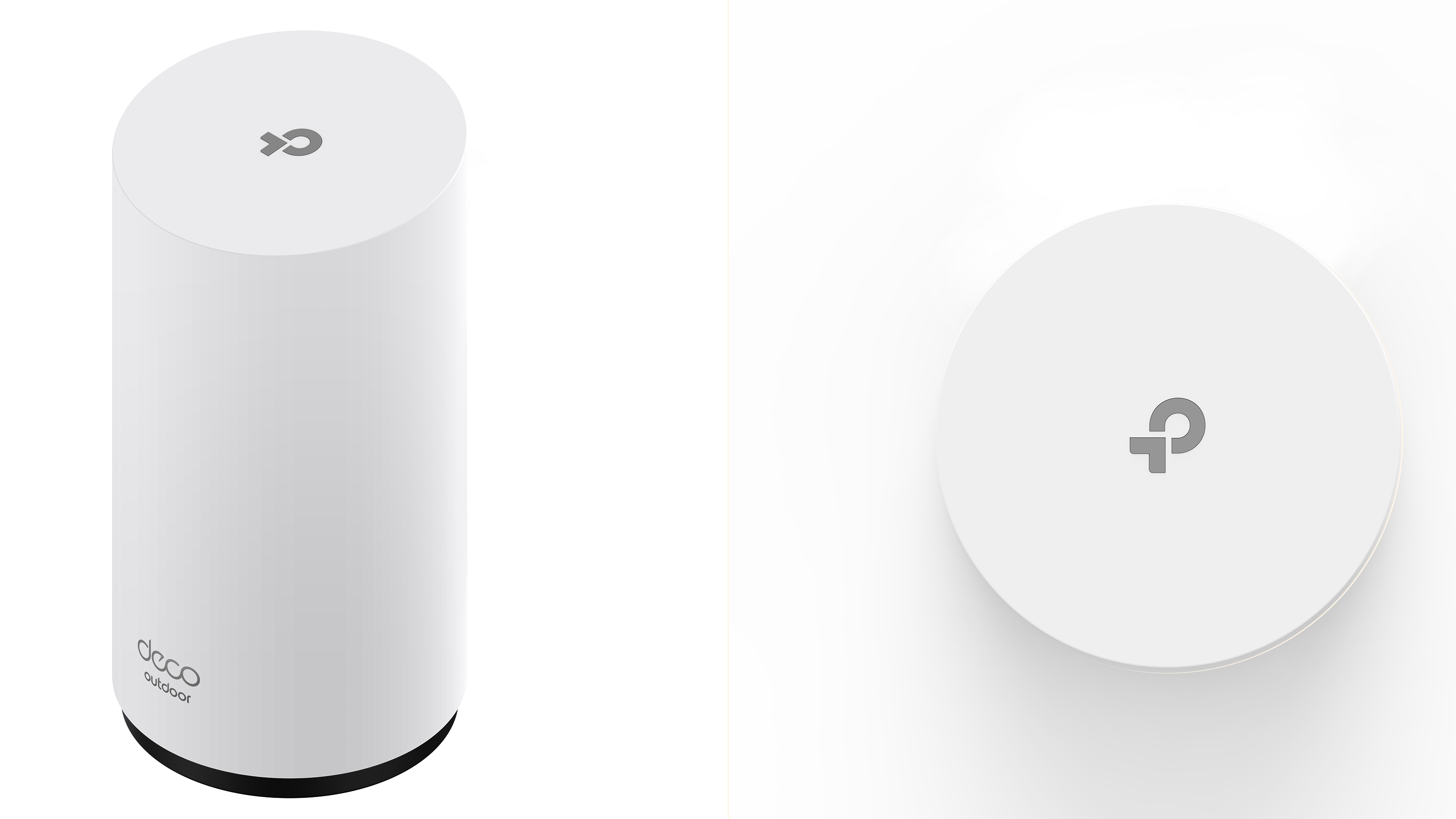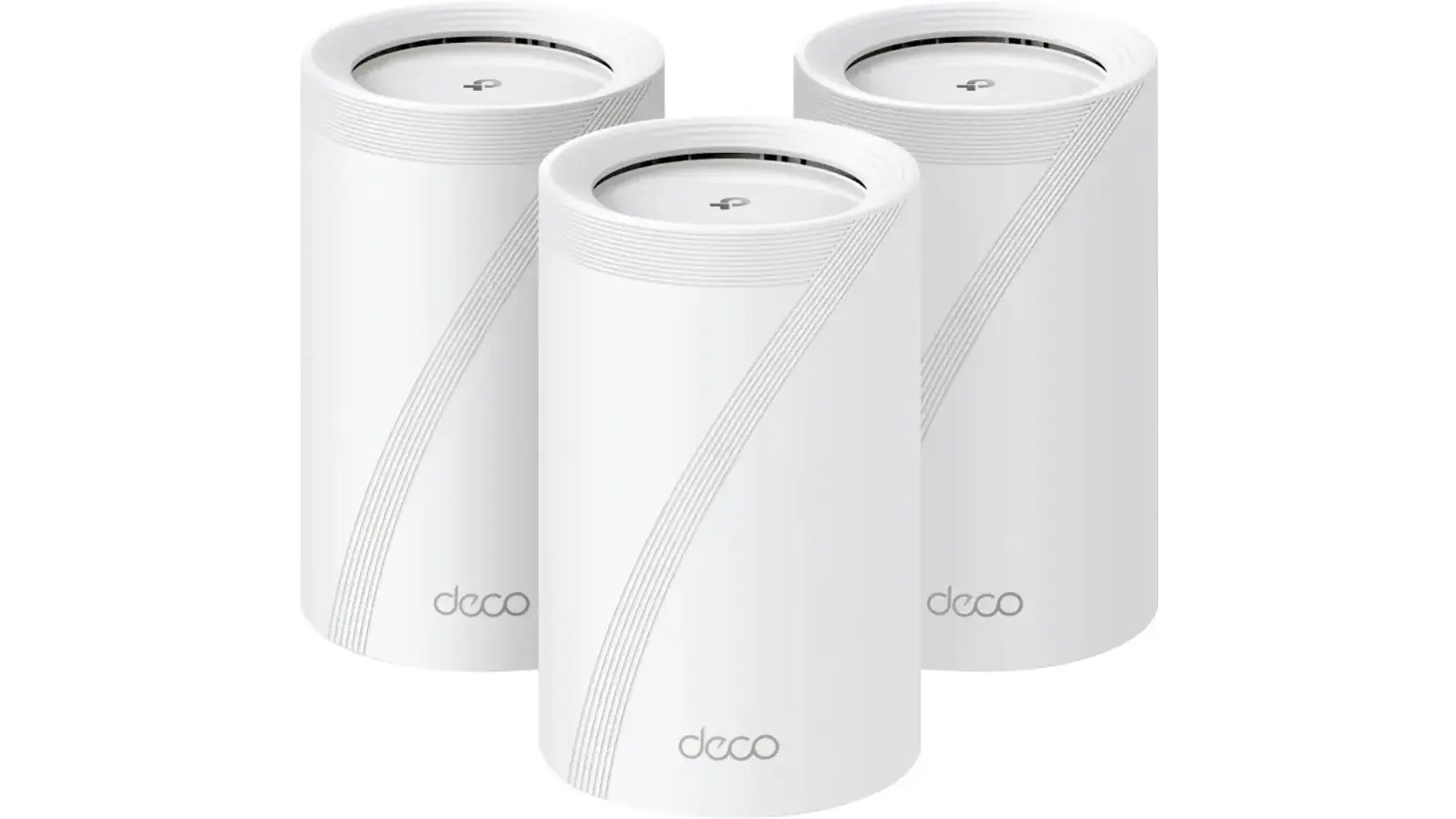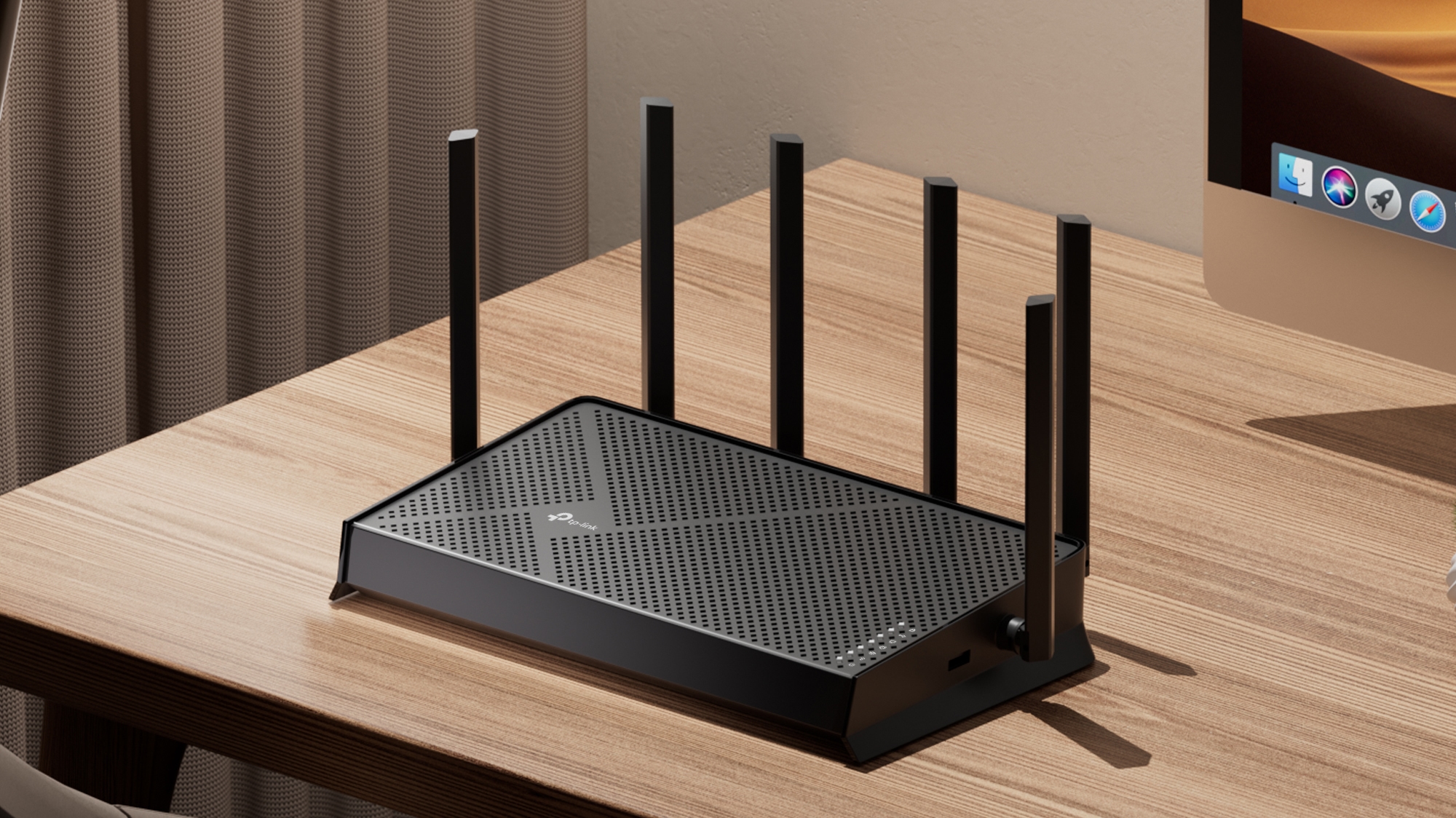TP-Link expands tri-band Wi-Fi 7 family with new routers and an outdoor satellite
TP-Link BE65 Outdoor takes direct aim at the Eero Outdoor 7

TP-Link has announced three new wireless products that leverage the latest Wi-Fi 7 standard, including an outdoor satellite that brings world-first functionality. The new offerings include the Deco BE65 Outdoor, the Deco BE68, and the Archer BE600.
We start with the Deco BE65 Outdoor, the company's first weather-resistant Wi-Fi 7 satellite. You might remember the Eero Outdoor 7 launched late last year with Wi-Fi 7 support. However, at least on paper, the Deco BE65 Outdoor should provide better performance. While the Eero Outdoor 7 only supported 2.4 GHz and 5 GHz bands, the Deco BE65-Outdoor also supports the higher-performing 6 GHz band.

According to TP-Link, the Deco BE65 Outdoor enables up to 688 Mbps on the 2.4 GHz band, up to 4,324 Mbps on the 5 GHz band, and up to 5,765 Mbps on the 6 GHz band while covering 3,000 square feet.
The satellite features IP65 weatherproofing, making it water and dust-resistant for use in your backyard, on a porch, or perhaps in an outdoor shed. You can use a wireless (MLO) or wired (two 2.5 GbE ports onboard) backhaul to connect to your primary Deco mesh network. Power is supported via a traditional AC adapter or Power over Ethernet (PoE).
TP-Link has priced the Deco BE65 Outdoor at $299.99, or $100 less than the $399 MSRP of the Eero Outdoor 7.

Next is the recently released Deco BE68 Wi-Fi 7 mesh router, which is sold as a three-pack. This 14 Gbps tri-band mesh system delivers 8,647 Mbps on the 6 GHz band, 4,324 Mbps on the 5 GHz band, and 688 Mbps on the 2.4 GHz band.
Each satellite has a single 10 GbE port, one 2.5 GbE port, and one GbE port. You'll also find a single USB 3.0 port on each satellite for connecting a non-wireless printer or external storage. TP-Link says that you can connect up to 200 devices to the mesh router and that it covers up to 8,100 square feet. The Deco BE68 carries a $699 MSRP, but is currently available from Best Buy for $599.99.
Get Tom's Hardware's best news and in-depth reviews, straight to your inbox.

Finally, we come to the Archer BE9700. At first glance, the Archer BE9700 looks identical to the Archer BE3600 we recently reviewed, but then you'll notice it has two additional external antennas. However, there are even more changes lurking inside.
While the Archer BE3600 is a dual-band Wi-Fi 7 router value priced at $99, the Archer BE9700 is a full-enabled tri-band Wi-Fi router. You'll see speeds of up to 5,756 Mbps on the 6 GHz band, up to 2,882 Mbps on the 5 GHz band, and up to 1,032 Mbps on the 2.4 GHz band. TP-Link even includes a single 10 GbE port on the router and three 2.5 GbE ports (one used for WAN).
The Archer BE9700 is available now, priced at $249.99 from Best Buy and Amazon.
Brandon Hill is a senior editor at Tom's Hardware. He has written about PC and Mac tech since the late 1990s with bylines at AnandTech, DailyTech, and Hot Hardware. When he is not consuming copious amounts of tech news, he can be found enjoying the NC mountains or the beach with his wife and two sons.
-
emike09 I was literally looking up WiFi 7 routers this morning before this article was published. Looking to upgrade my Wifi 6 router, but mostly because I need more than 1Gb LAN ports and might as well go to WiFi 7 since most of my devices support it.Reply
That said, I'm really not too impressed with WiFi 7. I like that 6e / 6Ghz has no detectable interference in my home from neighbors, but I'm looking for quality of signal more that a gazillion Gigabits per second. WiFI 8 drafts have a lot going for it for quality, reliability, and integrity of signal. That's more what I'm after. -
txfeinbergs Reply
WiFi 7 is great, but I would avoid TP-Link like the plague. I actually got one of their WiFi-7 routers and it wasn't even programmed correctly from the factory and would not reset. It had so many issues I sent it back and switched to a Eero. More expensive, but worked right off the bat and rock-solid reliability.emike09 said:I was literally looking up WiFi 7 routers this morning before this article was published. Looking to upgrade my Wifi 6 router, but mostly because I need more than 1Gb LAN ports and might as well go to WiFi 7 since most of my devices support it.
That said, I'm really not too impressed with WiFi 7. I like that 6e / 6Ghz has no detectable interference in my home from neighbors, but I'm looking for quality of signal more that a gazillion Gigabits per second. WiFI 8 drafts have a lot going for it for quality, reliability, and integrity of signal. That's more what I'm after. -
tanon Reply
The real problem with WiFi 7 isn't the standard (which is actually excellent and probably the first major improvement to Wi-Fi since the introduction of 802.11ac).emike09 said:I was literally looking up WiFi 7 routers this morning before this article was published. Looking to upgrade my Wifi 6 router, but mostly because I need more than 1Gb LAN ports and might as well go to WiFi 7 since most of my devices support it.
That said, I'm really not too impressed with WiFi 7. I like that 6e / 6Ghz has no detectable interference in my home from neighbors, but I'm looking for quality of signal more that a gazillion Gigabits per second. WiFI 8 drafts have a lot going for it for quality, reliability, and integrity of signal. That's more what I'm after.
Technically speaking, WiFi 7 should offer huge improvements for signal quality, due to the introduction of MLO and multi-resource units (MRUs). This should allow more devices to communicate simultaneously, bringing huge improvements to latency as well as throughput.
The problem is that the vast majority of existing client devices don't support these newer features, so in practice a WiFi 7 router will fall back to WiFi 5/6 - meaning all of the major feature enhancements are basically switched off, leading to little to no observable performance gains.
We will probably have to wait at least 2-3 years for client support of the standard to reach a reasonable penetration, before we see significant widescale improvements in performance. -
bill001g Reply
Because of how wifi7 and wifi6e work it is much harder to really tell which radio channels are in use by the end devices. The channel that the router transmits the beacon only gives you a guess as to what channels the end device are really using. It would be really nice if everyone was not such a hog. wifi7 has the ability to use 320mhz chunks of radio bandwidth on 6ghz.emike09 said:
That said, I'm really not too impressed with WiFi 7. I like that 6e / 6Ghz has no detectable interference in my home from neighbors, but I'm looking for quality of signal more that a gazillion Gigabits per second.
I think in the USA there is only room for 3 people to attempt to use 320mhz and not overlap. In the EU and most the rest of the world there is only 1 so there is no ability to share the radio bandwidth.
This of course ignores the fact the massive numbers of people have been conned into buying mesh systems so now a single person with 3 mesh units can use every bit of radio bandwidth on 2.4,5 and the new 6ghz.
So for a short time there is less interference on the 6Ghz band but as the pricing comes down and pretty much every end device supports wifi7 it will be just like 2.4 and 5ghz bands.
No matter what magic that wifi marketing guys pretend there is there is no way to get around the fact the all the radio engery in the same radio bands will cause errors in wifi transmissions and that is the quality issue they can't really fix.
The only way to fix this is to find some way to enforce sharing between different independent houses. Will never happen since all wifi bands operate on unlicensed frequencies which means people can use it for non wifi uses if they want.
